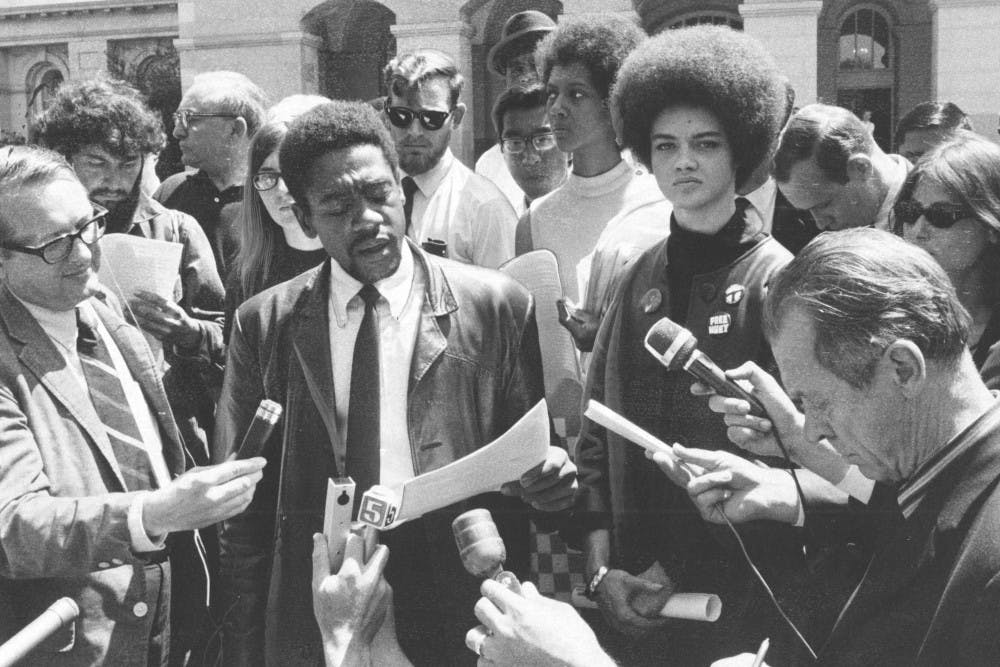Today I read a poll that showed 20 percent of Donald Trump’s supporters disagreed with the Emancipation Proclamation, which freed slaves. I also recently read that the NYPD is demanding an apology from Beyoncé for making a reference to the Black Panther Party and police brutality during the Super Bowl halftime show. My question is, why do we pretend anti-black sentiment isn’t present everywhere today? Why do we pretend it is a thing of the past, and why do we ignore every part of black history that even hinted at resistance to oppression?
To understand the impact of the Black Panthers today, we should primarily study its roots and how it began. I spoke to David Hinds, an ASU professor who teaches African Studies courses, about this topic.
Due to lack of knowledge, many view the Black Panther Party as an enigma. It has been described as a group similar to the KKK in extremist ideology. Although factually that is incorrect, misinformation and lack of dialogue causes this myth to persist. With so much misinformation mixed in with personal biases and a lack of visibility, the Black Panther Party is deeply misunderstood. As a nonblack individual, it is very important that I listen very carefully.
It is also important that when we study black history and discuss black issues, we do not choose the most palatable and silencing version of history. Malcolm X and Martin Luther King Jr. are often used as one-dimensional symbols of violence and of peace. We fail to recognize that both figures were murdered in cold blood despite their efforts for a better world.
We think of King as a peaceful man that everyone loved. However, Hinds assured me that he was the most hated man in the U.S., and that he was repeatedly targeted in the most violent ways, which resulted in his murder. We often gloss over this fact.
If King, a man who is known for peaceful protesting was criminalized, we can understand the perception of the Black Panther Movement which is seen as combative rather than protective. Hinds pointed out: “As is the case with many black organizations, (BPP was) quickly criminalized, and the Black Panther movement was criminalized in no different ways than the civil rights movement. There was a systematic effort to criminalize the Black Panther movement, and of course if the police is going to harass you, I imagine that the Black Panther party would engage in self-defense.”
Many argue that white supremacy and black power are no different, and if indeed that is true then one must come to the conclusion that the BPP and KKK are similar. However, this is far from the truth. Dr. Hinds stresses that white supremacy is the power to impose one’s prejudices, for example, through laws that were instilled such as the Plessy v. Ferguson case or the Three-Fifths Compromise.
There were laws in this country against black people’s very existence that inevitably leaves discrimination alive today. To empower one’s self in the midst of being degraded and dehumanized is a lesson for all of humanity, and essentially that is what the Black Panther and Black is Beautiful movement sought to do. These are lessons we should be learning in schools and in our free time.
Hinds closed our conversation by posing a very interesting point. If we understand the '60s civil rights movement, we can better understand the 21st century, because there is a relationship between then and today. A system can legally come to an end, but the legacy of the system lives on. He tells me that what African-Americans confront today is not the plantation, but the legacy of it. He says: “We are still confronted with the legacy today, it is still unfinished business. What we want is for non black people to look at the experience of the BPP movement because it raises questions, are we still in the presence of police brutality, racism and black poverty?”
Related Links:
Former U.S. Civil Rights Commission chairwoman tells students to continue fight for equality
Reach the columnist at anshakoo@asu.edu or follow @ashak21 on Twitter.
Like The State Press on Facebook and follow @statepress on Twitter.
Editor’s note: The opinions presented in this column are the author’s and do not imply any endorsement from The State Press or its editors.
Want to join the conversation? Send an email to opiniondesk.statepress@gmail.com. Keep letters under 300 words and be sure to include your university affiliation. Anonymity will not be granted.




